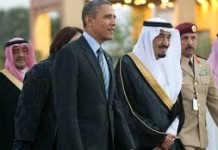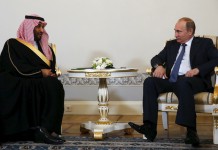Context
 The spokesman for former president Pervez Musharraf has announced he intends to launch a new political party, All Pakistan Muslim League, on October 1st. The declaration has created a political frenzy in Pakistan. Nonetheless, in the aftermath of Altaf Hussain’s invitation to patriotic generals to assist in bringing about a revolution, Musharraf’s plan represents another attempt to fill the present lack of leadership and governance in the country. This analysis examines the implications of Musharraf’s reentry on the political scene of Pakistan albeit as a civilian leader.
The spokesman for former president Pervez Musharraf has announced he intends to launch a new political party, All Pakistan Muslim League, on October 1st. The declaration has created a political frenzy in Pakistan. Nonetheless, in the aftermath of Altaf Hussain’s invitation to patriotic generals to assist in bringing about a revolution, Musharraf’s plan represents another attempt to fill the present lack of leadership and governance in the country. This analysis examines the implications of Musharraf’s reentry on the political scene of Pakistan albeit as a civilian leader.
Analysis
As a tradition, people of Pakistan tend to assess its former leaders more highly than the existing ones. Following this rule, many pundits in the country have made comparisons of Musharraf era to the current PPP led coalition government. No doubt, during Musharraf’s tenure the economic condition of the country was much better, and the law and order situation took a turn for the worse only after the Red Mosque operation in July 2007. Sizeable foreign investments were made in the country, and at one point, Pakistan’s stock market was rated most promising in the world. Generally, the economic growth in Pakistan has been speedier during army rule as compared to civilian leadership.
Support for Musharraf’s new party is likely to come from previous coalition partners such as Muslim League-Q, Muttahida Quami Movement and other religious parties. However, Musharraf carries with him serious political baggage related to his controversial actions against the Supreme Court, death of Nawab Akbar Bugti, and assassination of Benazir Bhutto. It should also be noted that Musharraf first came to power after removing a constitutionally elected government of Nawaz Sharif, and it was only after 9/11 that he was able to muster international credibility. He was a close and vocal ally of United States in the war against terror, which won him many enemies.
Musharraf’s new party will in all likelihood rearrange the politics of Muslim League-N and Pakistan Tehreek-e-Insaf. If Muslim League-Q related splinter factions such as ‘Hum Khayal’ group do join up with Musharraf, the politics of Muslim League-N will be affected. Musharraf’s popularity overseas continues to be one of his assets, which could potentially compete with Imran Khan’s constituents abroad. Meanwhile, Pakistan Peoples Party could come out to be one of the beneficiaries of these new dynamics. The focus of the Supreme Court could shift from matters related to NRO and move towards unconstitutional steps undertaken by Musharraf during his rule. Having just revitalized its public image, the Pakistan military is unlikely to tread near its former chief.
When it comes to the policies of the new Musharraf party, it would be interesting to observe the party stance on fighting extremism, particularly when the momentum for peace talks and political solution is increasing on the Afghan side but the emphasis for military action remains the focus when it comes to Pakistan.
President Musharraf’s foreign allies are unlikely to pledge their support behind him once again. The PPP led coalition government although performing poorly on the domestic front is cooperating fully as it relates to the war against terror. Furthermore, General Kiyani has adopted a much more conciliatory approach towards Afghanistan and Karzai as oppose to tensions that were a hallmark of Musharraf’s term. Additionally, according to media reports, General Kiyani may have also quietly allowed foreign troops on the ground, a move vehemently opposed by Musharraf.
It also remains to be seen if Musharraf would return to Pakistan. Altaf Hussain provides ample precedence that parties can be run from overseas. Moreover, both Benazir Bhutto and Nawaz Sharif had also continued to conduct politics from overseas during Musharraf period.
Tell Us What You Think



